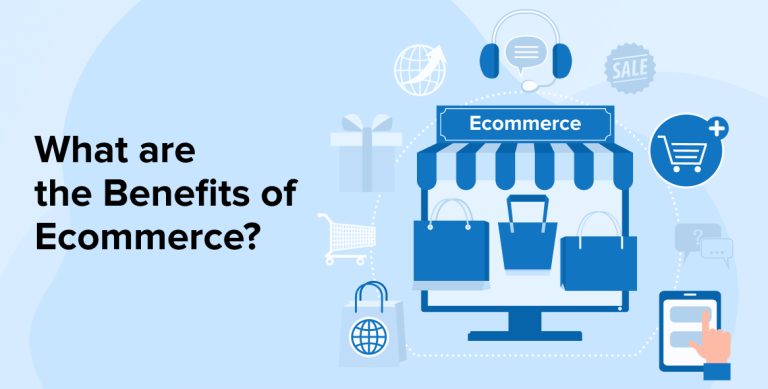
10 Advantages of eCommerce Website For Your Business.
15 May 24
10 Advantages of eCommerce Website For Your Business.
Table of Contents | Sr | Headings | 1 | Introduction | 2 | Global Reach | 3 | 24/7 Availability | 4 | Reduced Overheads | 5 | Increased Customer Base | 6 | Personalized Shopping Experience | 7 | Analytics and Insights | 8 | Scalability | 9 | Competitive Advantage | 10 | Improved Customer Service | 11 | Cost-Effective Marketing | 12 | Conclusion | 13 | FAQs Introduction Having an eCommerce website is no longer just an option but a necessity for businesses looking to thrive in the competitive marketplace. An eCommerce website offers numerous advantages that can significantly boost your business's growth and success. In this article, we'll explore ten compelling reasons why investing in an eCommerce website is beneficial for your business. Global Reach One of the most significant advantages of an eCommerce website is its ability to reach a global audience. Unlike traditional brick-and-mortar stores limited by geographic location, an eCommerce website allows you to sell your products or services to customers worldwide. This expanded reach opens up new opportunities for business expansion and revenue growth. 24/7 Availability Unlike physical stores with fixed operating hours, eCommerce websites are accessible 24/7, allowing customers to browse and make purchases at their convenient time. This round-the-clock availability ensures that you never miss out on potential sales opportunities, even during non-business hours or holidays. Reduced Overheads Operating an eCommerce website typically involves lower overhead costs compared to maintaining a physical storefront. With no need for expensive retail space, utilities, or additional staff, eCommerce businesses can save significantly on rent, utilities, and staffing expenses, resulting in higher profit margins. Increased Customer Base By eliminating geographical barriers, an eCommerce website enables you to tap into a broader customer base. Whether they're located across town or on the other side of the globe, customers can easily find and purchase from your online store, leading to an increase in sales and brand visibility. Personalized Shopping Experience eCommerce websites offer the opportunity to provide personalized shopping experiences tailored to each customer's preferences and behavior. Through features like product recommendations, personalized discounts, and targeted email marketing campaigns, you can enhance customer satisfaction and loyalty, driving repeat purchases. Analytics and Insights An eCommerce website provides valuable data and insights into customer behavior, preferences, and purchasing patterns. By leveraging analytics tools, businesses can gain a deeper understanding of their audience, identify trends, and make data-driven decisions to optimize their marketing strategies and product offerings. Scalability Unlike traditional retail models constrained by physical limitations, eCommerce businesses can easily scale their operations to accommodate growth. Whether it's expanding product lines, reaching new markets, or handling increased website traffic, eCommerce platforms offer flexibility and scalability to support business expansion. Competitive Advantage In today's competitive marketplace, having an eCommerce presence can give your business a competitive edge. By offering convenient online shopping experiences, innovative features, and superior customer service, you can differentiate your brand and stand out from competitors. Improved Customer Service An eCommerce website allows businesses to deliver exceptional customer service through various channels, including live chat, email support, and self-service portals. By promptly addressing customer inquiries, resolving issues, and providing helpful resources, you can enhance customer satisfaction and loyalty. Cost-Effective Marketing Compared to traditional marketing channels, eCommerce websites offer cost-effective ways to promote your products and reach your target audience. From social media advertising and email marketing to search engine optimization (SEO) and content marketing, eCommerce platforms provide a range of affordable marketing strategies to drive traffic and sales. Conclusion In conclusion, investing in an eCommerce website offers numerous advantages for businesses of all sizes. From expanding your reach and increasing sales to reducing overhead costs and improving customer service, an eCommerce presence can propel your business forward in today's digital landscape. FAQs 1. Do I need technical expertise to set up an eCommerce website? - While technical expertise can be helpful, many eCommerce platforms offer user-friendly interfaces and templates that make it easy for beginners to set up and manage their online stores. Additionally, you can hire web developers or use third-party services to assist with website development and maintenance. 2. How can I ensure the security of my eCommerce website? - To ensure the security of your eCommerce website, it's essential to implement robust security measures such as SSL encryption, secure payment gateways, and regular security audits. Additionally, you should keep your website software up to date, use strong passwords, and educate your team about cybersecurity best practices. 3. Can I integrate my eCommerce website with other business systems? - Yes, many eCommerce platforms offer integration capabilities with other business systems such as inventory management, accounting, and customer relationship management (CRM) software. Integrating your eCommerce website with these systems can streamline operations, improve efficiency, and enhance the overall customer experience. 4. What are some effective marketing strategies for promoting an eCommerce website? - Some effective marketing strategies for promoting an eCommerce website include search engine optimization (SEO), social media marketing, email marketing, content marketing, influencer partnerships, and pay-per-click (PPC) advertising. By leveraging a combination of these strategies, you can increase visibility, drive traffic, and generate sales for your online store. 5. How can I measure the success of my eCommerce website? - You can measure the success of your eCommerce website using various metrics, including website traffic, conversion rates, average order value, customer retention rate, and return on investment (ROI). By regularly monitoring these metrics and analyzing trends over time, you can identify areas for improvement and optimize your eCommerce strategy for continued growth.


CALL
Ready to Work Together In New Projects ?
Services
App Development
Web App Development
Digital Marketing
UI And UX Designing
Custom Mobile And Web Development
Free Tools
Quick Links
Our Apps
Find us on Clutch
Privacy & Policy
Shipping & Delivery Policy
Return & Refund Policy
Terms & Condition
FAQs
Legal
Contact
Hyde Park Crown First Floor, FF-14-21 Plot No GH-03 Sector-78, Noida, Uttar Pradesh 201306
info@2digitinnovations.com
+91 7814042409
